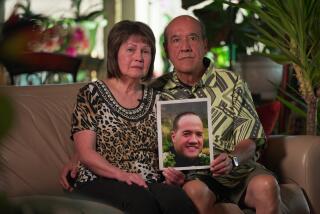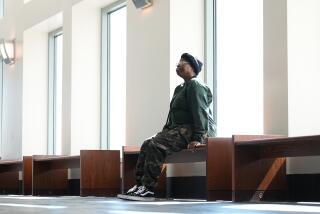Ruling Limits Ability to Sue for Emotional Distress
- Share via
SAN FRANCISCO — The state Supreme Court today limited the ability to sue for emotional distress and rejected a suit by a mother who rushed to the scene of an auto accident and saw her young son lying unconscious in the street.
By a 5-2 vote, the court said only a close relative who is at the scene of an injury caused by negligence can sue for his or her own emotional distress.
The ruling rejected several lower-court decisions that have allowed suits by parents and others who learned of an accident and came on the scene immediately afterward.
Son Hit by Car
In the case before the court, the mother, Maria Thing of Lemon Grove, was in her house in December, 1980, when her daughter told her, “They hit John.” She hurried outside and saw her son, John Thing, lying bleeding and unconscious on the pavement, where he had just been hit by a passing car.
Thing’s suit against the driver, James La Chusa, was allowed by a state appeals court in San Diego but was ordered dismissed by the Supreme Court because she did not see her son being injured.
Line Had to Be Drawn
Conceding that the limit was arbitrary, Justice David Eagleson said some line had to be drawn to avoid “limitless liability out of all proportion to the degree of the defendant’s negligence, and against which it is impossible to insure without imposing unacceptable costs” on other policyholders.
“The impact of personally observing the injury-producing event in most, although concededly not all, cases distinguishes the plaintiff’s resultant emotional distress from the emotion felt when one learns of the injury or death of a loved one from another,” said Eagleson, joined by the court’s other conservatives.
More to Read
Sign up for Essential California
The most important California stories and recommendations in your inbox every morning.
You may occasionally receive promotional content from the Los Angeles Times.













